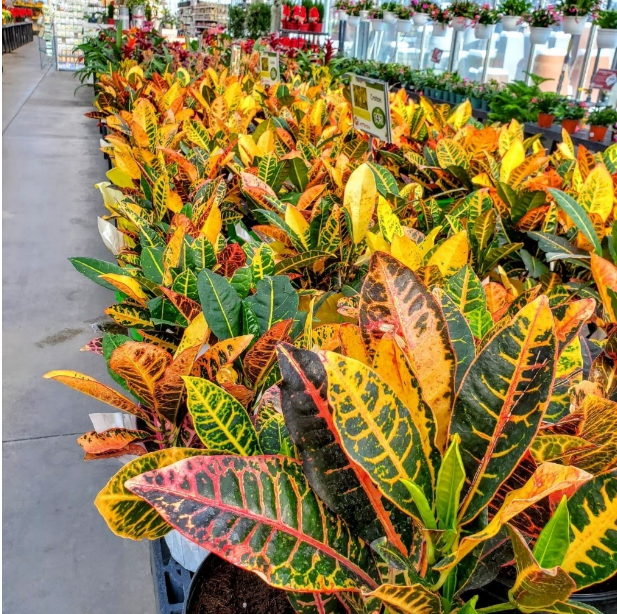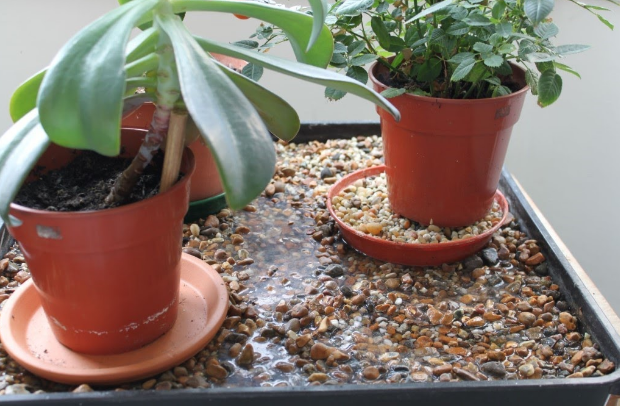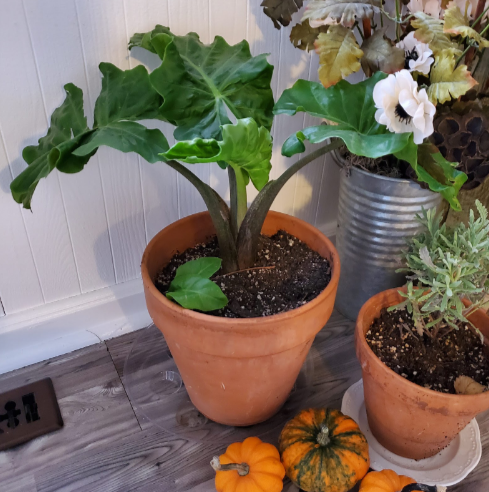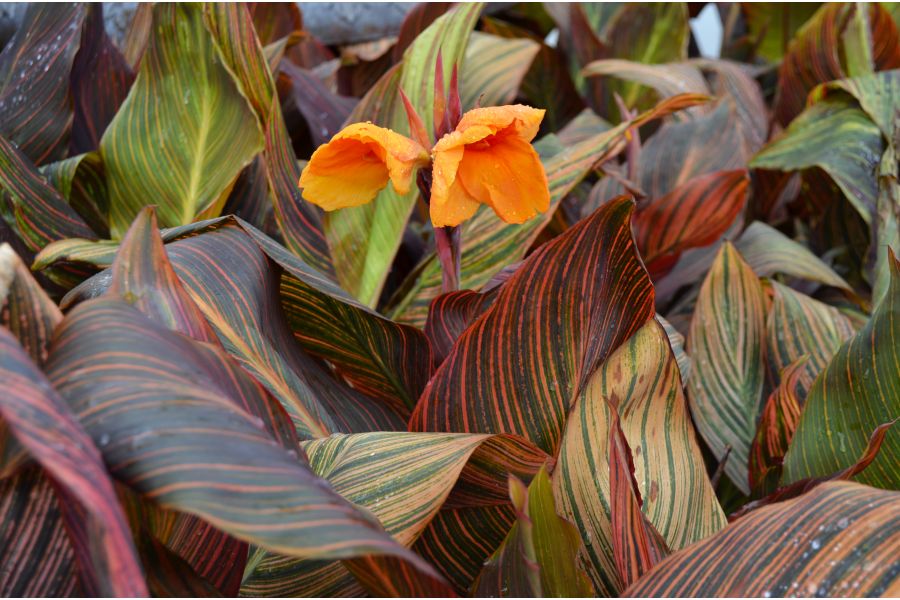In our climate, tropical plants are usually considered annuals and disposed of at the end of each season. However many of these plants, especially larger specimens, represent a substantial monetary investment. Instead of throwing them away or putting them in your compost pile, consider overwintering them. Depending on the type of plant, you may be able to bring it inside and grow it as a houseplant or you can store it as a dormant plant, tuber or root.

Crotons from Gertens Greenhouse
Tropicals that tolerate life as a houseplant
Plants that tolerate being brought in and overwintered as houseplants are cordyline, phormium, palms, croton, bamboo, jasmine, allamanda, bougainvillea, hibiscus and citrus.
- Bring them in well BEFORE frost.
- They require bright light, but not necessarily direct sunlight.
- They prefer high humidity, which can be challenging in houses with forced air heat. Misting them several times daily will help.
- Grouping them closer together and/or placing them in saucers or trays filled with rocks and water will also help as it naturally raises the humidity around them.
- They prefer temperatures between 60-70 degrees.
- Expect some leaf yellowing and drop as they acclimate themselves to the change in light.
- Check the plants carefully for insects when you bring them in. Applying Bonide Systemic Houseplant Insect Control can give added protection. This is applied to the soil, worked in around the plant then watered. Each application protects the plant for 8 weeks against a wide range of insects. Another alternative if you notice insects is to use Bonide Insecticidal Soap. This is a ready to use product that is sprayed on all parts of the plant. It is fast acting and not harmful to beneficial insects.

Humidity Tray
Letting them go dormant
Banana, brugmansia and hibiscus (if you do not want to deal with them as a houseplant) do well if allowed to go dormant.
- Be sure to bring them in well BEFORE frost.
- Put them in a dark or near-dark room that is 40-50 degrees. This will alert the plants to go into dormancy. Their leaves will yellow and drop.
- If need be for ease of storage, they can be cut back, but this is best not done until spring.
- Water sparingly throughout the winter. The soil should be slightly moist down a couple inches. This keeps the roots viable but the plant from active growth.
- Once spring arrives, revive the plants by cutting back, repotting in fresh soil, watering thoroughly and providing a weak dose of liquid fertilizer.
- Place in bright but filtered light. Give them about a month of active growing inside before putting them outside.
- Reintroduce them to the outside slowly. Shield from direct sunlight and wind for 1-2 weeks. If this is done, they should happily begin actively growing again.

Colocasia
Winter rest
Ginger, sweet potato vine, colocasia, caladium, cannas, calla, gladiolus and dahlia are grown from bulbs, corms or tubers and actually require a winter rest.
- Allow them to get nipped by frost before bringing them indoors. This sends the plant a message that the end of the season has come.
- Cut the plant back to about 6 inches and carefully dig up or remove the plant from the pot.
- Clean the loose soil off the bulb, corm or tuber and let them air dry.
- If they have produced additional plants, separate them.
- Once dry, place them in a ventilated container in peat moss, small bark mulch or sawdust. This helps hold enough moisture to keep them from shriveling and losing viability.
- Place them in a dark, cool (40-50 degrees) place like a basement, cellar or crawl space.
- Check monthly for rotting or shriveling.
- Lightly mist the medium in which they are stored.
- Discard any rotten ones.
- In the spring, repot, begin fertilizing and place in a sunny window to get going prior to taking outside. Give them time!
The experts at Gertens are always available to answer your questions!

